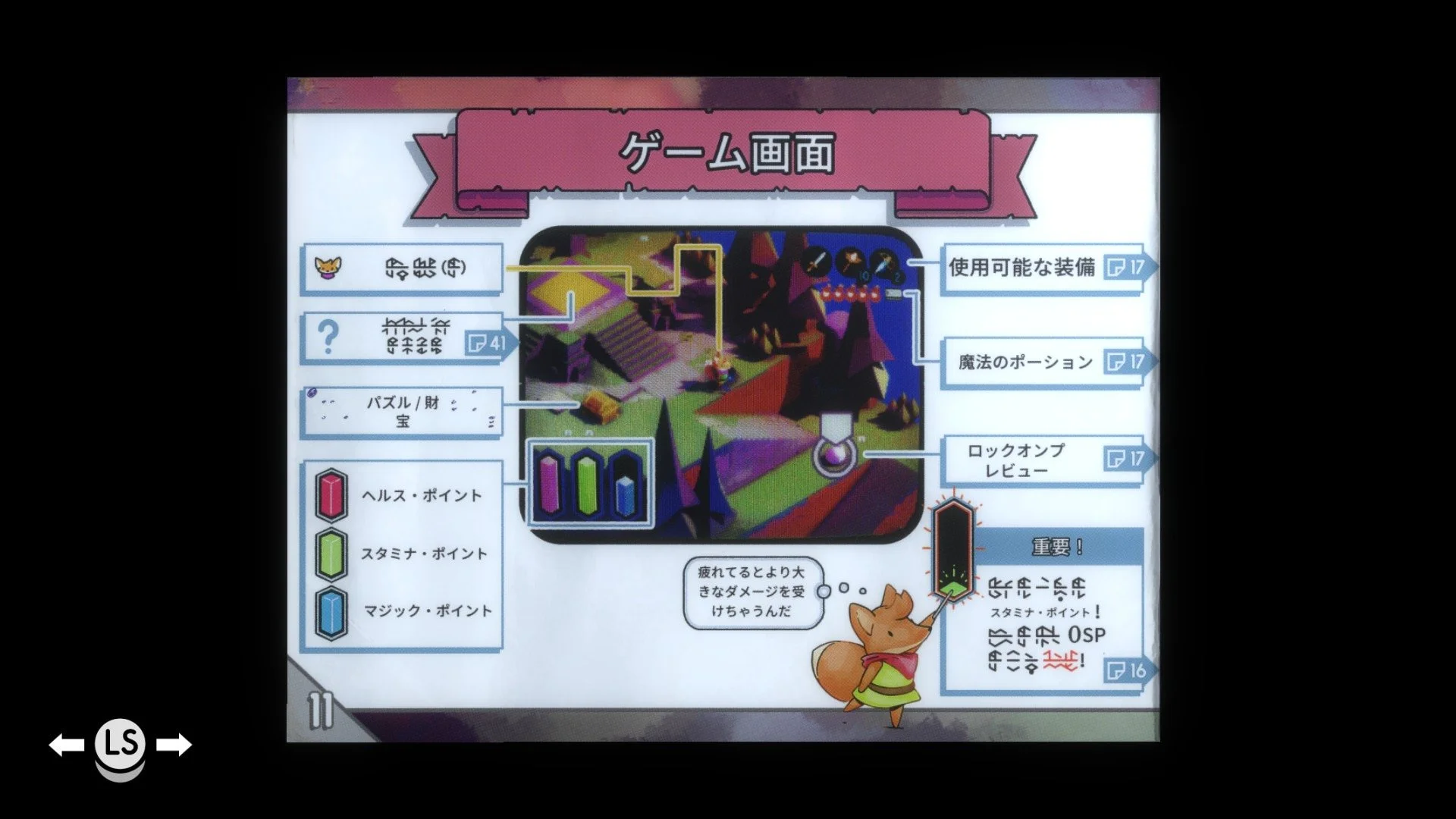Rediscovering Tunic: A Journey Through Cognitive Dysfunction and Growth
When I first picked up the game Tunic, I was immediately drawn to its charm. The protagonist, a tiny fox wielding a sword, embarks on an adventure through a beautifully crafted world. The art style is vibrant and inviting, blending whimsy with a touch of mystery. Tunic is a game inspired by classic action-adventure titles like The Legend of Zelda. But it comes with a twist: most of its text is written in a mysterious, fictional language.
At the time, this unique feature felt like a barrier. My brain couldn’t handle the extra layer of effort needed to interpret symbols while trying to solve puzzles and navigate the game world. I was in the thick of autistic burnout, grappling with cognitive dysfunction. Tasks that once felt manageable had become overwhelming, and my ability to process complex information felt out of reach. Frustrated, I set the game aside.
Months passed. During this time, I focused on healing from burnout. This meant addressing the underlying causes of my cognitive struggles—restoring balance in my life, managing sensory inputs, and practicing patience with myself. Living with cognitive dysfunction as part of autistic burnout is a rollercoaster. Some days, my mind is sharp and engaged; other days, even simple tasks feel insurmountable. It’s not a linear process, but one of small victories and gradual improvement.
As my cognitive function improved, I began incorporating video games into my morning wake-up routine. They became a way to warm up my brain—offering a challenge without real-world stakes. Once I finished some of the games I had already been playing, I decided to return to Tunic. This time, the foreign language no longer felt like a barrier. Instead, it became an intriguing puzzle, sparking curiosity rather than frustration. The game’s design encourages players to piece together meaning by observing patterns, exploring the world, and collecting in-game pages styled like a retro instruction manual. Without realizing it, I had transformed a once-daunting task into something genuinely enjoyable, thanks to my improved cognitive flexibility.
Playing Tunic became more than just a game; it became a reflection of my own growth. Each moment of discovery—whether solving a puzzle or deciphering a phrase—reminded me how far I’d come. I could feel my brain working in ways it hadn’t in a long time, and the process was fun rather than exhausting.
Cognitive dysfunction is one of the less visible symptoms of autistic burnout, but its impact can be profound. It can strip away confidence, making familiar tasks feel impossible. However, recovery is possible with time, support, and the right strategies. For me, Tunic was a milestone in that recovery—a symbol of resilience and adaptability.
If you’re struggling with cognitive challenges, know that it’s okay to step away and come back when you’re ready. Growth doesn’t have to follow a straight line. Sometimes, it’s about recognizing the small wins, like picking up a game you once put down and discovering you’re ready to face its challenges.
Tunic is more than a game; it’s a testament to the power of patience and persistence. Whether you’re solving puzzles in a fictional world or navigating the complexities of real life, remember that progress is still progress, no matter how small.
Looking for more guidance? Schedule a free discovery session to explore how my coaching can help you achieve your health and wellness goals!



